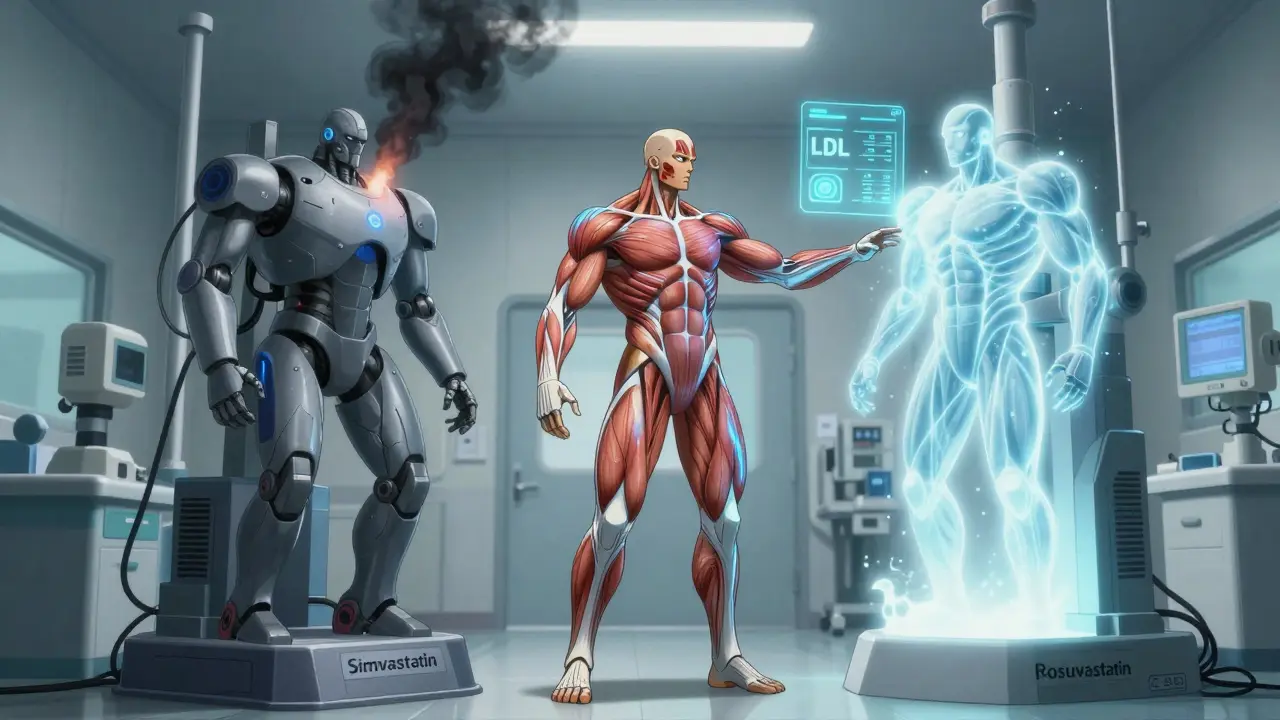Statin Side Effects: What You Need to Know Before Taking Cholesterol Medication
When you take a statin, a class of drugs used to lower LDL cholesterol and reduce heart attack risk. Also known as HMG-CoA reductase inhibitors, these medications are among the most prescribed in the world because they work—often dramatically. But knowing how they help isn’t enough. You need to know what they might do to your body, too.
Many people start statins without thinking about side effects until they feel something off. The most common issue? muscle pain, a dull ache or weakness that shows up in the shoulders, thighs, or calves. It’s not always serious, but if it’s new, worsening, or paired with dark urine, it could signal something bigger. Then there’s liver enzyme changes, a lab finding that often means nothing but needs checking. Your doctor will order blood tests early on—not because statins are dangerous, but because they want to catch rare problems before they grow. Some people also report brain fog or trouble sleeping, though studies show these are often linked to the nocebo effect: if you expect side effects, you’re more likely to notice them.
Statin side effects aren’t one-size-fits-all. A 65-year-old woman with diabetes might handle rosuvastatin just fine, while a 45-year-old man who lifts weights might struggle with simvastatin. Why? Genetics, age, other meds, even vitamin D levels play a role. That’s why jumping off a statin because of a single symptom isn’t smart. Talk to your doctor first. There are lower doses, different statins, or even non-statin options like ezetimibe or PCSK9 inhibitors that might work better for you. The goal isn’t to avoid statins—it’s to find the right one, at the right dose, so you stay protected without feeling worse.
What you’ll find below are real, detailed comparisons and personal experiences from people who’ve dealt with these side effects. You’ll see how others managed muscle pain, what liver test numbers actually mean, and which statins are least likely to cause trouble. No fluff. Just clear, practical info that helps you make smarter choices with your doctor.
Statin Intolerance: How to Recognize Muscle Symptoms and Find Effective Alternatives
Statin intolerance causes muscle pain in many, but most cases aren't truly caused by the drug. Learn how to spot real intolerance, rule out other causes, and find safe, effective alternatives that protect your heart.
Vitamin D and Statin Tolerance: What the Evidence Really Shows
Does vitamin D help you tolerate statins? New evidence says no. Learn why muscle pain on statins isn't fixed by vitamin D supplements-and what actually works instead.

